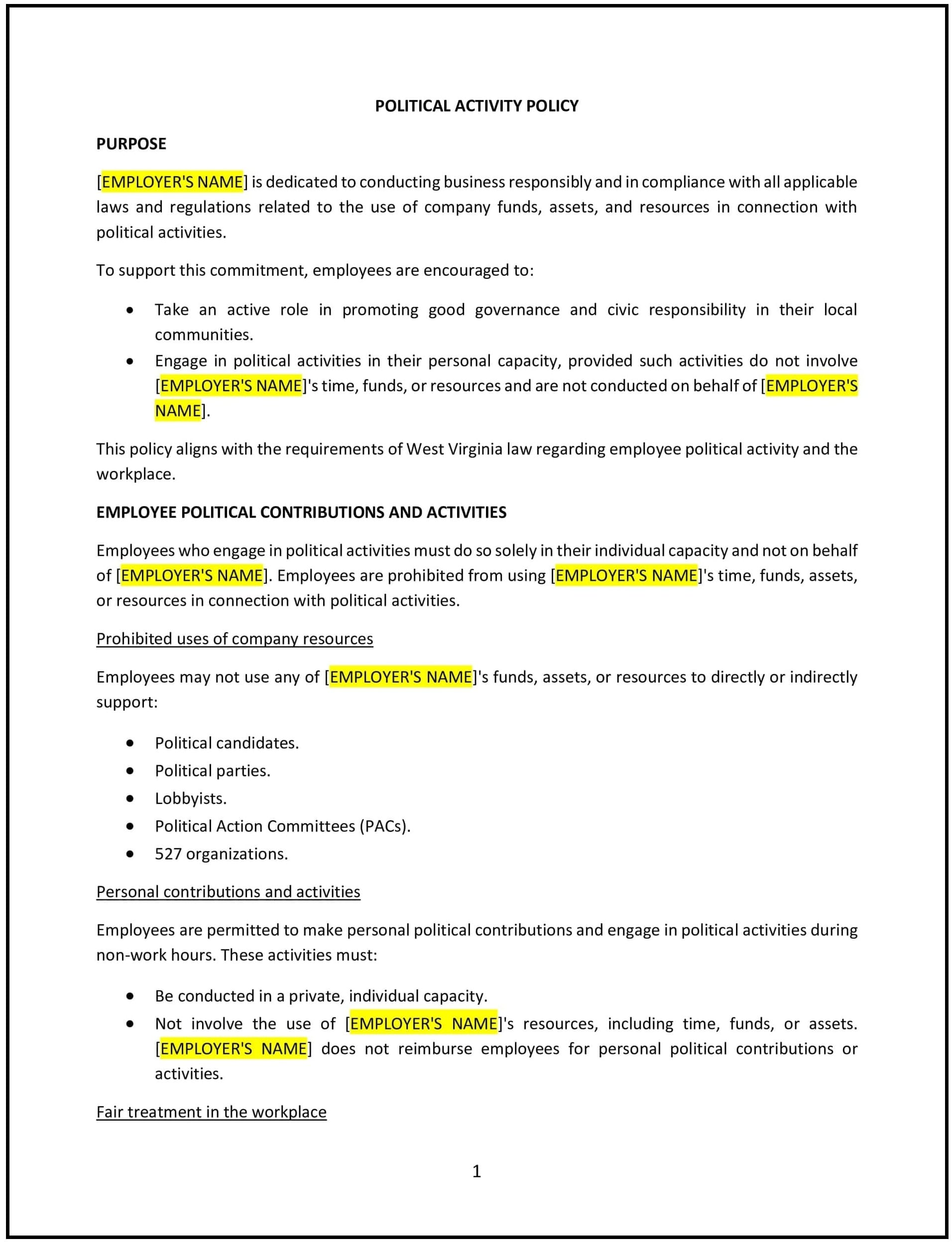Political activity policy (West Virginia): Free template
Got contracts to review? While you're here for policies, let Cobrief make contract review effortless—start your free review now.

Customize this template for free
Political activity policy (West Virginia)
In West Virginia, a political activity policy outlines guidelines for employees engaging in political activities to impove compliance with applicable laws, maintain workplace neutrality, and prevent conflicts of interest. This policy establishes boundaries for political expression in the workplace while protecting employees' rights to participate in political activities outside of work.
The policy defines permissible and prohibited activities, disclosure requirements, and the organization's stance on political neutrality.
How to use this political activity policy (West Virginia)
- Define permissible activities: Specify political activities allowed during personal time, such as campaigning, voting, or participating in political events, as long as they do not interfere with work responsibilities.
- Outline prohibited activities: Prohibit political activities during work hours or using company resources, such as distributing political materials or soliciting contributions on company property.
- Address disclosure requirements: Require employees to disclose political activities that may create conflicts of interest with their roles or the organization.
- Emphasize workplace neutrality: Reinforce the organization's commitment to maintaining a neutral workplace free from political bias or coercion.
- Support compliance: Ensure the policy aligns with West Virginia labor laws and federal regulations protecting employees' political rights.
Benefits of using a political activity policy (West Virginia)
- Maintains workplace focus: Reduces potential distractions or conflicts caused by political discussions or activities during work hours.
- Supports compliance: Aligns with West Virginia laws and federal regulations, supporting the lawful handling of political activity in the workplace.
- Protects employee rights: Balances employees' rights to political expression with the organization's need for a neutral and productive work environment.
- Prevents conflicts of interest: Establishes clear boundaries to avoid situations where political activities might compromise organizational integrity.
- Enhances clarity: Provides employees with clear guidelines on acceptable political activities and expectations in the workplace.
Tips for using a political activity policy (West Virginia)
- Communicate the policy: Share the policy with employees during onboarding and ensure it is easily accessible for reference.
- Train managers: Provide training on enforcing the policy fairly and addressing potential conflicts or violations.
- Monitor compliance: Regularly review workplace practices to ensure adherence to the policy and address concerns promptly.
- Encourage respectful dialogue: Foster a culture of respect and inclusivity by discouraging divisive political discussions in the workplace.
- Review periodically: Update the policy to reflect changes in West Virginia laws, federal regulations, or organizational practices.